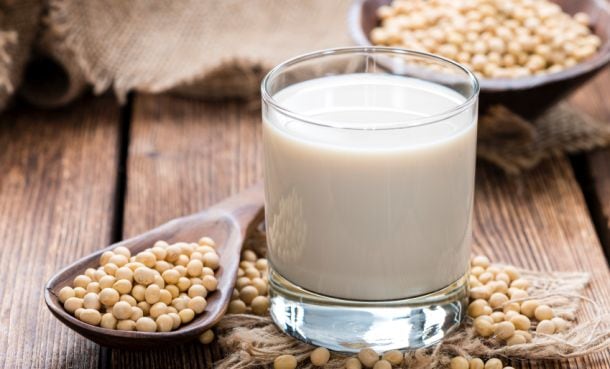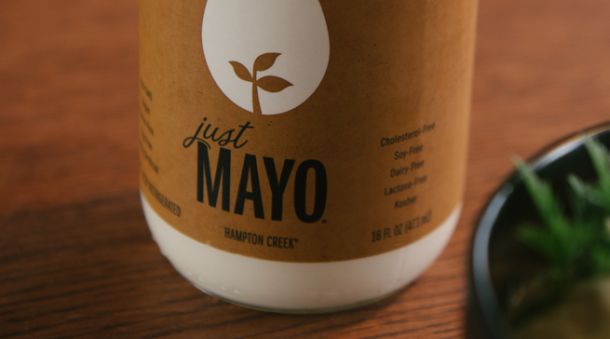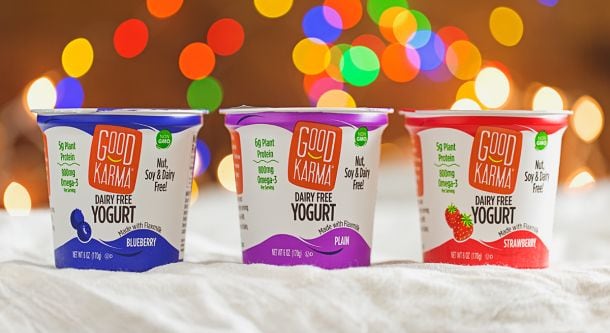The answer is an emphatic ‘NO’ according to a letter from 34 lawmakers (and supported by leading dairy associations) urging the FDA to enforce the standard of identity for ‘milk,’ which (enshrined in 21 CFR § 131.110), which describes it as the “lacteal secretion, practically free from colostrum, obtained by the complete milking of one or more healthy cows.”
"We strongly believe that the use of the term milk by manufacturers of plant-based products is misleading to consumers, harmful to the dairy industry and a violation of milk's standard of identity," the Congressmen and women - led by Mike Simpson (R-Idaho) and Peter Welch (D-Vt) - told FDA Commissioner Robert Califf.
"We request that the FDA exercise its legal authority to investigate and take appropriate action against the manufacturers of these misbranded products."
Judge: No ‘reasonable consumer’ would confuse soy with dairy milk
When this issue has been tested in the courts, however, it has seemed less clear cut, while attorneys we quizzed this week say the issue is more nuanced than the letter to the FDA implies.
In a December 1, 2015 order dismissing allegations (Gitson v Trader Joe’s 3:13-cv-0133) that Trader Joe’s had misled consumers and violated FDA standards of identity by using the term ‘soymilk’ on food labels, for example, US district judge Vince Chhabria said no ‘reasonable consumer’ would confuse soy with dairy milk.
Meanwhile, the fact that there is a federal standard of identity for ‘milk’ which limits it to lacteal secretions from cows “does not categorically preclude a company from giving any food product a name that includes the word milk”, he argued.
“The standardization of milk simply means that a company cannot pass off a product as ‘milk’ if it does not meet the regulatory definition of milk. Trader Joe's has not, by calling its products ‘soymilk,’ attempted to pass off those products as the food that the FDA has standardized (that is, milk).”
He added: “The threshold question in this case… is whether the use of the word ‘soymilk" in the Trader Joe's products could conceivably violate the federal Food, Drug and Cosmetic Act. The answer to that question is no.”
"The lack of enforcement by FDA of the long‐standing labeling provisions of various standards of identity for milk and dairy products and other pertinent federal labeling regulations has led to rampant consumer fraud."
National Milk Producers Federation (from petition to FDA in 2010)
Judge: ‘There is no conceivable justification for the assertions made in the FDA warning letters’
He also gave short shrift to FDA warning letters (click HERE to read one sent to LifeSoy) taking issue with the term ‘soymilk’, adding: “There is no conceivable justification for the assertions those letters make about the word ‘soymilk’ so they do not support a claim that products with ‘soymilk’ in their titles violate the federal statute.”
The Court agrees with defendants that the names 'soymilk,' 'almondmilk,' and 'coconutmilk' accurately describe defendants' products
His comments echo those of fellow US district judge Samuel Conti, who threw out a similar case (Alex Ang & Kevin Avoy et al vs WhiteWave Foods Company 3:13-cv-01953) vs WhiteWave Foods, noting that under the plaintiffs' logic, consumers might also "assume that 'flourless chocolate cake' contains flour or 'e-books' are made out of paper".
In this instance, the court held that 'soymilk' and related terms met the common and usual name requirements of the FDA, while Judge Conti found it “simply implausible” that consumers would be confused by these names. He also rejected the claim that terms such as ‘almondmilk’ violated FDA regulations defining milk.
He added: “The Court agrees with defendants that the names 'soymilk,' 'almondmilk,' and 'coconutmilk' accurately describe defendants' products. As set forth in the regulations, these names clearly convey the basic nature and content of the beverages, while clearly distinguishing them from milk that is derived from dairy cows.
“Moreover, it is simply implausible that a reasonable consumer would mistake a product like soymilk or almond milk with dairy milk from a cow.”

“While imitation may be the sincerest form of flattery, dairy imitators do not naturally provide the same level of nutrition to the people buying them as milk does… Non-dairy beverages can mislead people into thinking these products are comparable replacements for milk, when in fact most are nutritionally inferior.”
Michael Dykes, president and CEO, International Dairy Foods Association
NMPF: Nutmilk is not milk
The National Milk Producers Federation (NMPF), however, which has been lobbying the FDA to take action to curb the use of plant ‘milk’ labeling for years, told FoodNavigator-USA last year that: “From where we sit, the FDA has not given this issue the attention it deserves…
"The FDA did offer a perfunctory response acknowledging our most recent petition in 2010, but no promises of further action… Their point is essentially that enforcing alleged violations of standards of identity by the imitators is not a priority for which they have resources.”
It also noted that in the EU, regulators allow the use of the term 'soy drink,' but prohibit 'soy milk.'

“You haven’t ‘got milk’ if it comes from a seed, nut or bean. In the many years since we first raised concerns about the misbranding of these products, we’ve seen an explosion of imitators attaching the word ‘milk’ to everything from hemp to peas to algae. We don’t need new regulations on this issue, we just need FDA to enforce those that have been on the books for years.”
Jim Mulhern, President and CEO, National Milk Producers Federation
Attorney: The FDA has changed its stance on standards of identity lately
So what do food law attorneys make of all this? Are plant-based food companies safe to use terms such as almond milk or not?
Rebecca Cross, counsel in the food and beverage practice at Davis Wright Tremaine LLP, told FoodNavigator-USA that in the absence of a specific standard of identity (SOI), the FDA allows companies to identify their products by a 'common or usual name' or 'an appropriately descriptive term.'
But isn't the whole point that there is a SOI for milk? According to Cross, it may not apply here: "It is not clear whether plant-based milk products are subject to the Standard of Identity for 'milk,' given the addition of the words like soy, almond, or cashew in front of the term on their labels." After all, she pointed out, "Butter is not subject to the Standard of Identity for 'peanut butter.'"
Meanwhile, she added, "Courts have consistently found that terms like 'soymilk' or 'almond milk' are appropriately descriptive and understood by consumers."

The FDA, meanwhile, has "shifted on this issue," she claimed.
"Years ago, it issued some warning letters indicating that it objected to 'soymilk' and similar terms. But more recently, it has allowed plant-based products to use dairy terms on their labels so long as, in context, use of the term is not misleading. For example, just last year, it specifically allowed Hampton Creek to keep the name “Just Mayo” where there is a Standard of Identity for mayonnaise.
"But of course, the agency could change its mind again in response to this letter, dairy industry pressure, and/or under the new administration."
Adam Fox: The 'plant milk' question has not been conclusively resolved in the courts
So is the plant ‘milk’ question still a ‘live’ legal issue, or did judge Chhabria finally put this matter to bed?
Not according to Adam Fox, a partner at law firm Squire Patton Boggs, who said that while some plaintiffs’ lawyers "may no doubt be discouraged" from pursuing more plant milk cases after reading Judge Chhabria's 2015 order, "it seems early to ring the death knell for such litigation.
"No abundance of district court opinions can conclusively resolve an issue," said Fox.
"More specific to these claims, the risk of litigation remains...and it would be imprudent to assume this is the last time we will see such claims or new ones that have not yet been tested in the courts [none of these cases has yet gone to trial]."
Bruce Silverglade, principal at law firm Olsson Frank Weeda Terman Matz PC in Washington, DC, added: "If FDA asserts itself, the agency could enforce its standards of identity and take the position that such action preempts the states."

"The FDA has shifted on this issue. Years ago, it issued some warning letters indicating that it objected to 'soymilk' and similar terms. But more recently, it has allowed plant-based products to use dairy terms on their labels so long as, in context, use of the term is not misleading. For example, just last year, it specifically allowed Hampton Creek to keep the name “Just Mayo” where there is a Standard of Identity for mayonnaise."
Rebecca Cross, counsel in the food and beverage practice at Davis Wright Tremaine LLP
The FDA told FoodNavigator-USA that it "plans to respond directly to the lawmakers," but has not provided further details.

"The main premise of the letter from members of Congress is the consumer confusion created by use of terms like soymilk, almondmilk or flaxmilk.
Household penetration of plant-based milks has exceeded 30% of US households so it’s clear that plant based milks are now reaching the masses with widespread acceptance.Consumers are selecting plant based milks over dairy milks for many reasons, from lactose intolerance, dairy allergies, environmental concerns, vegan/vegetarian lifestyle and for overall health and balance as consumers continue to trade out animal based calories for plant based calories.
"Given the many reasons for purchase, the fact that plant based food consumers are label readers, and the labeling itself is factually correct and does not imply it’s milk from a cow, we agree with many of the recent court rulings that it’s unlikely that a consumer would be misled or confused by the current naming approach."
Doug Radi, CEO, Good Karma Foods
